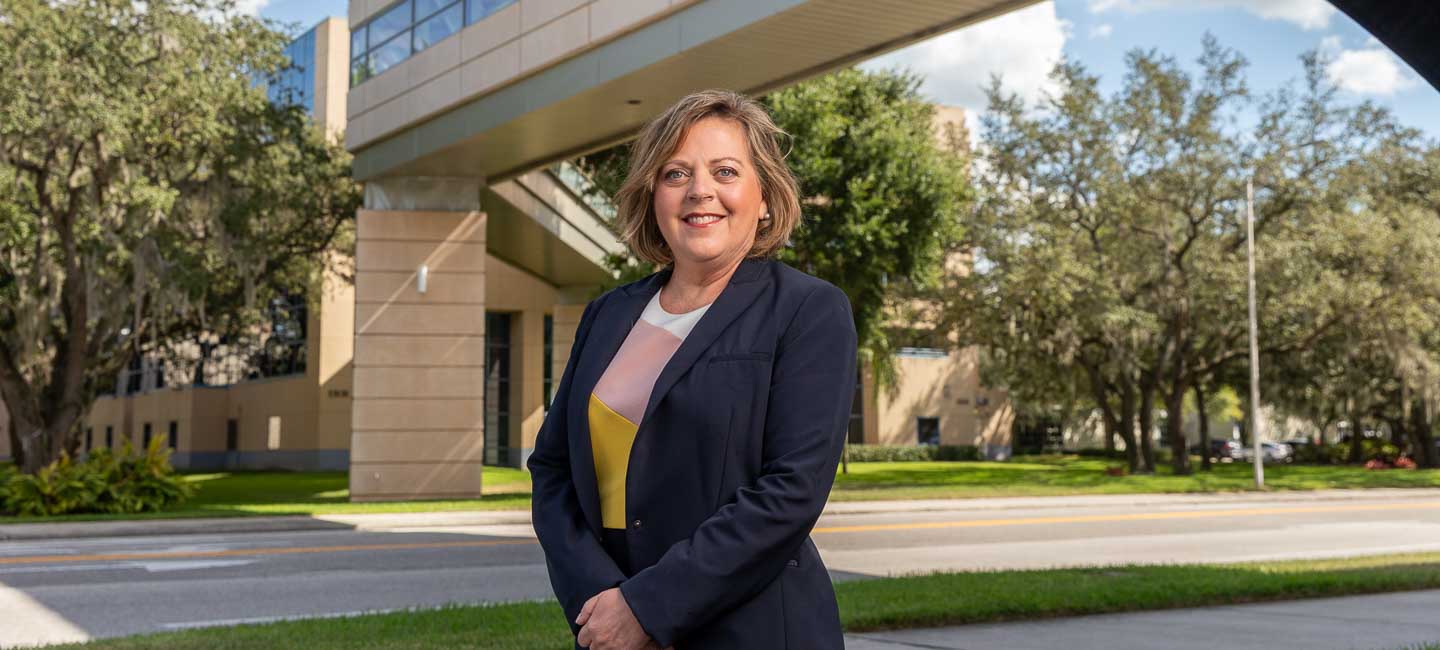“Every discovery leads to more questions.”
P.K. Epling-Burnette, PharmD, PhD, joined Moffitt 30 years ago as one of the first pharmacy residents and one of the first post-doctoral fellows recruited to the organization. She is now a senior faculty member in the Immunology Program, studying the basic science of anti-tumor immunity. Read on as Dr. Epling-Burnette describes her unique path to becoming a researcher and shares what inspires her every day.
What excites you right now about the field of oncology and the role that you play in it?
After 50 years of tireless research, the field of immunology is finally hitting its stride. This is highlighted by the two scientists in immunology whose work in cancer immunotherapy was recognized with the Nobel Prize in 2018. Over the last three to five years immunotherapy has really been on the forefront of cancer therapy. There are endless opportunities now with immunotherapy to fight cancer – much more effectively than drugs alone ever could fight cancer.
What book is currently on your nightstand?
I am primarily keeping up with current news events on my iPad. However, when I choose a book it is usually a literary classic.
What do you wish others knew about you as a woman researcher?
I would like others to know that I am the first generation college graduate in my family – my mother only had an 8th grade education and my father finished 10th grade with a GED. They always encouraged me to get the highest level of education possible. Also, my sister happened to be my biology teacher in high school and she made science and research so much fun. It’s what I felt most comfortable with so I went to college to do research. During that time, though, I saw lots of postdocs struggling to find jobs, so I switched to pharmacy. After I got my degree in pharmacy I did several rotations at Tampa General Hospital and at All Children’s. I was the first pharmacy resident here at Moffitt. The required research project during that 18-month residency here at Moffitt brought me back to research. My first research project was to study the excitation of muscle cells at the neuromuscular junction.
What is an epiphany that has shaped you into the researcher you are today?
It’s the individual successes we have in the lab that build so much excitement. And every discovery leads to more questions, it is a never ending quest and that is really what keeps me going.
If you had the opportunity to meet one particular person who would that be, why and what would you want to talk about?
I would love to meet my maternal and paternal grandparents. Unfortunately, I never had the chance to talk to them and I would love to hear about their lives. They lived such difficult and strenuous lives – one grandmother had 12 children, and the other died in childbirth. I would love to learn from them and how they made it through hardship and challenges.
What keeps you up at night?
Nothing really keeps me up at night. It’s more excitement about what we can accomplish the next day in the lab. The only worry would probably be whether I can get my students in the lab to graduate on time.
What would you like your legacy at Moffitt to be?
Being a good collaborator and a nice person that is always there for others – that’s how I would like to be remembered: a researcher who collaborated with lots of people on complex projects involving multiple disciplines.
Do you have any advice for other women interested in a research career?
I have never perceived myself as a woman researcher. I am just trying to do a good job and that would be my advice for everyone – just do a good job and find your passion!



